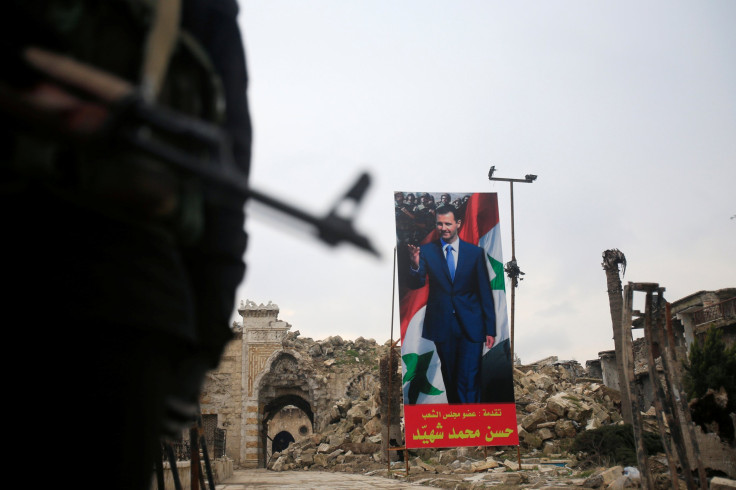When Will ISIS Be Defeated? Syrian Army, Rebels Surround Islamic State City For Major Battle

The Syrian army advanced Monday toward the Islamic State group-controlled city of al-Bab, severing the last major supply route for the militants as Turkish-backed opposition forces move in from the north.
Both the Russian-backed Syrian army, loyal to the Syrian government and President Bashar Assad, and Turkish-supported Syrian rebels are opposed to the Islamic State group, also known as ISIS. However, the two forces are considered the main contenders for power in the nation's nearly six-year civil war. As the Syrian army moves in from the south and rebels from the north, both Damascus and Ankara are vying to declare victory over ISIS in al-Bab, one of the militant's last major cities in the Middle East and a strategic gateway to launch operations on ISIS' de facto capital of Raqqa in northern Syria.
"There is one narrow passage left out of al-Bab," a military commander allied to the Syrian army told Reuters Monday, adding that the remaining ISIS-held territory was "within close firing range."
The Syrian Observatory for Human Rights, a U.K.-based organization closely tied to the Syrian opposition, and the Free Syrian Army, a loose coalition of rebel groups, confirmed the Syrian army's advances, which cuts ISIS off from the contested eastern city of Deir al-Zour and its territory in neighboring Iraq. If both the Syrian army and Turkish-backed opposition reach al-Bab, a new battle may ensue between the two incoming forces, according to Mustafa Sejari, a senior official in the Free Syrian Army's Liwa al-Mutasem group.
Obviously, Al-Bab is now besieged after #SAA cutting the main supply line linking to #Raqqa. pic.twitter.com/M5MAiHsXpm
— Majd Fahd 🇸🇾 (@Syria_Protector) February 6, 2017
ISIS has its origins in the jihadist group al-Qaeda in Iraq, which became notorious for its violent, sectarian campaign against government forces and the Shiite minority in Iraq after the 2003 U.S. invasion and overthrow of former President Saddam Hussein. The group, led by influential Sunni jihadist cleric Abu Bakr al-Baghdadi, expanded into Syria by taking advantage of the 2011 armed uprising against Assad and declared itself a global caliphate in 2014. After taking large swathes of territory in Syria and Iraq, however, the militant group's gains were reversed by a wide range of adversarial forces local and foreign that includes the armies of Iraq and Syria, their allies and their opponents.
Russia and Iran, both of which support Assad, and Turkey, which sponsors a faction of Syria's fractured opposition, brokered a peace deal last month in Astana, Kazakhstan, agreeing to closely monitor a truce between the Syrian army and oppositions forces as both battle to eradicate ISIS. Some major Islamist opposition groups such as the jihadist Jabhat Fatah al-Sham, formerly known as al-Qaeda's Nusra Front, and Ahrar al-Sham have rejected talks with the government.
Meanwhile, the Iraqi army, backed by U.S. airstrikes, Kurdish forces and Iranian-backed Shiite militias, have begun to recapture the ISIS-held town of Mosul, effectively neutralizing the last ISIS stronghold in Iraq.
© Copyright IBTimes 2024. All rights reserved.












